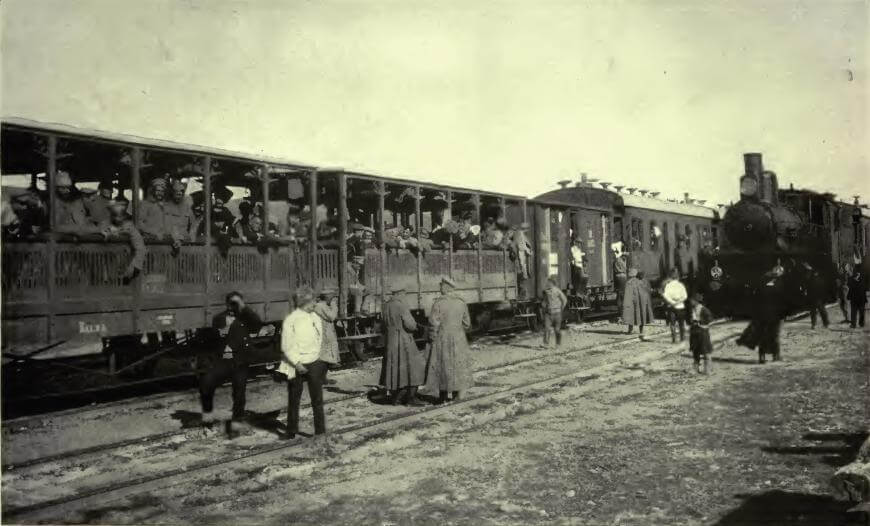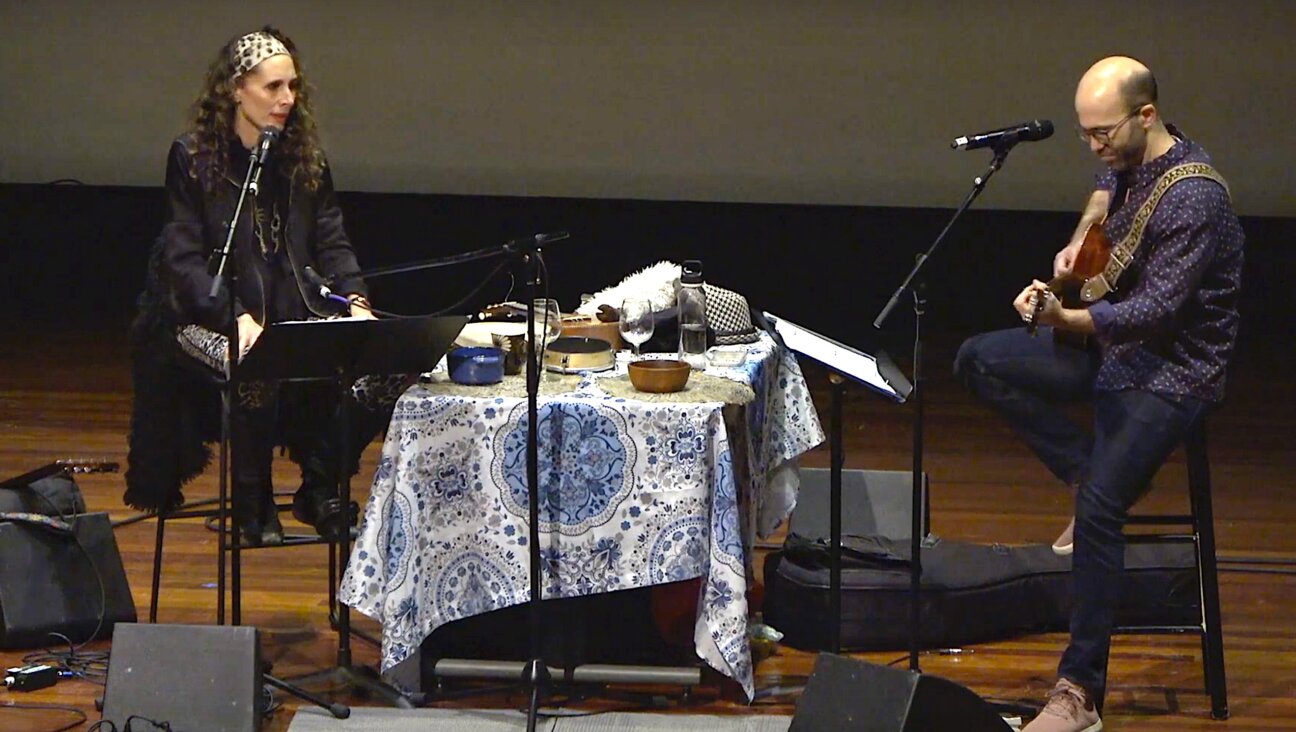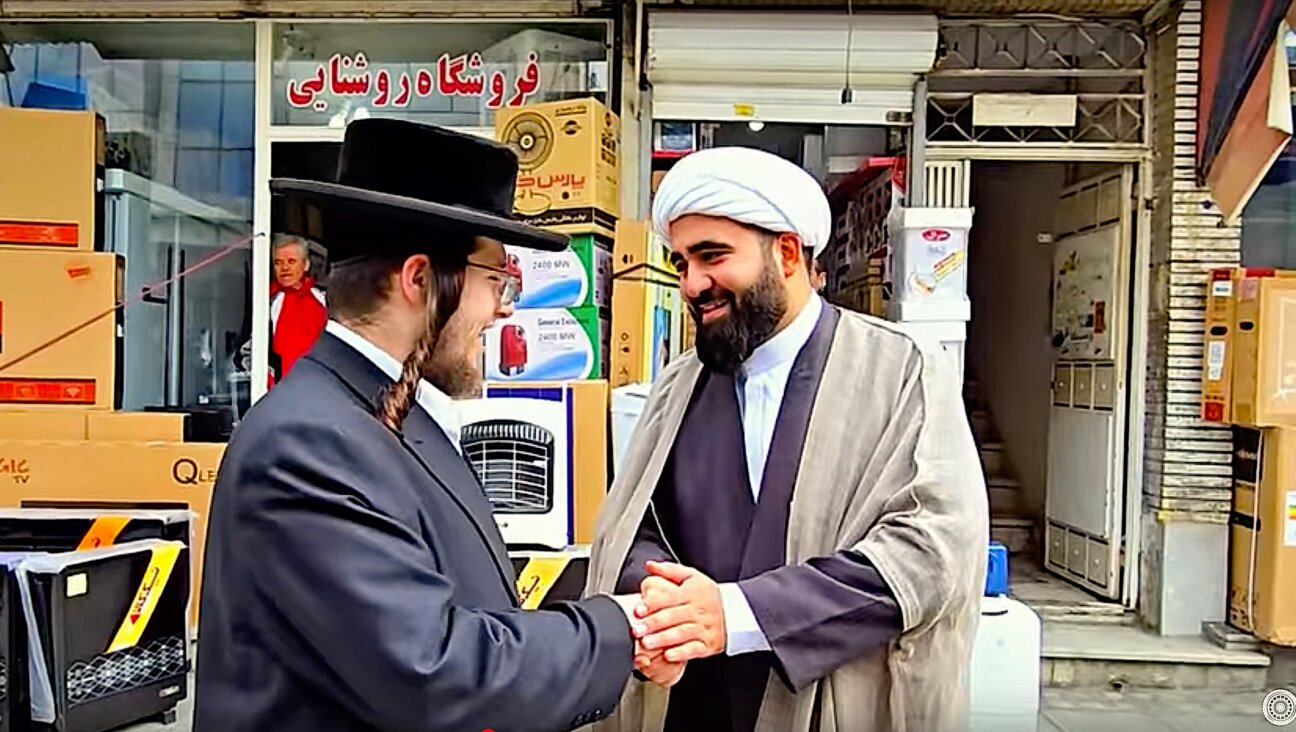From our archives: Two Jewish teens escaping Bialystok arrive in Harbin, China
Despite Czarist Russia’s attempt to spread antisemitism to Harbin, China prohibited anti-Jewish persecutions in the areas it controlled.

Photo by Wikimedia Commons
Most Eastern Europeans who fled pogroms and poverty to America at the turn of the 20th century did so on ships across the Atlantic Ocean. But Harry “Chonie” Oshinsky and his friend Yankel Goldberg took a journey eastward over three continents. His family, fearing for his imminent conscription into the Polish army, encouraged him to travel to Russia by train in the early part of 1914. What follows is Part II of Oshinsky’s incredible story.
To read part I, go here.
This story is based on an article by the immigrant himself, Choni (Harry) Oshinsky, that appeared in the Forverts in the 1970s.
On their train ride from Bialystok, Poland, into Russia, Harry Oshinsky and his friend Yankel Goldberg saw the horrors of war first-hand. “Wounded people, those with missing arms or legs, bandaged heads,” he wrote later in his autobiography. “All in all, it was a frightening sight to behold.”
The painful scenes Harry witnessed at each railroad stop — tearful farewells to sons and husbands; wailing embraces of families greeting those that returned — instilled a pacifism in him that he carried throughout his life.
When they arrived in Minsk, Harry and Yankel’s first stop was a bakery run fortuitously by a Jewish widow and her daughter Sonya. The shopkeepers took the two refugees under their wing, helping them obtain a place to live and employment. After registering as required with the police, they both found work making gas masks, but Harry soon found a tailoring job. After several weeks, Sonya, through a local doctor, connected them with a Jewish welfare organization, who provided the two boys free tickets to Harbin, China, where the Hebrew Immigrant Aid Society (HIAS) would handle the remainder of their trip to San Francisco.
Armed with a huge salami, a tea kettle and students’ clothes to disguise them from potential arrest (a parting gift from Sonya), Harry and Yankel hired a droshke, a horse and carriage, to take them to the railroad station, which was in utter chaos. The train was hours late, necessitating their waiting all night to finally board. A conductor took pity on the two “homeless” boys and encouraged them to sleep. They traveled first to Moscow, then to Viasna, where they would begin their journey deep into Siberia.
Near the end of their six-day journey, a fellow traveler overheard the two speaking in Yiddish. “Don’t be afraid,” he said, “I’m Jewish too.” He warned them that they would be arrested and conscripted into the Russian army if they proceeded with their planned stop in Erkutcsk. Instead, he advised them to deboard in Chita, Siberia, and gave them the name of a Jewish man who ran a boarding house, known to help fellow fleeing refugees.
Harry and Yankel followed the stranger’s advice. After debarking and taking a horse and buggy to the address provided, the two poor, exhausted travelers were welcomed with a hot meal, a full night’s sleep, and the inn-keepers’ referral to a Mr. Goldberg [not related to Yankel] who owned a tailor shop in Chita.
The shop owner was delighted to hire two fellow Jews and, through his connections with local police, arranged for a six-month work permit. The Goldberg family embraced them like their own sons, providing room and board, along with a good salary. Every day, Harry and Yankel witnessed groups of political prisoners bound in chains, working in horrible conditions. It made them recognize their own good fortune — and their own possible fate if caught.
By July 1915, the work permits they had obtained upon arriving in Chita, Siberia, were about to expire. It was time for them to continue their dangerous journey. Disguised as merchants, they boarded the Chinese Eastern Railway (CER) for Harbin, China.
Harry and Yankel’s destination was one chosen by many other Jewish refugees refuges fleeing World War I, the Russian Revolution and its ensuing famine. Despite White [Czarist] Russia’s attempt to spread antisemitism to Harbin to the CER, the Chinese authorities prohibited any anti-Jewish persecutions in the areas it controlled. As a result, Harbin became one of the largest host cities for Eastern European Jews. Stepping in to fill the need, American Jewish relief organizations launched operations in Harbin, the most efficient one being the Hebrew Sheltering and Immigrant Aid Society of America (HIAS). Some Jews settled in the Chinese city, but for many others, it was merely a safe haven on their way to the United States.
Arriving in Harbin in late summer, 1917, Harry and Yankel registered with HIAS and took residence in one of the buildings established by the organization. They shared the large residential room with Jews of all ages, all awaiting the paperwork necessary to continue on to the western seaports in Japan. In the meantime, Harry earned money as a tailor; at one point, making a suit for the Russian-born Yiddish theater star Aaron Lebedeff.
Although their journey had been very challenging, what lay ahead was even more difficult. Through HIAS, Harry, Yankel, and six other Jewish refugees hired an agent who, for 25 rubles per person, promised to arrange for their being smuggled to their next stop — Changzhou, China. A journey that should have taken eight hours lasted eight grueling days by foot, boat, and horse and wagon. The travelers were hidden under blankets on boats, in wagon booths which normally held only women meant only for women, and once across the border to Japan — in rickshaws.
The group made its way to Dalian, China, which came under Japanese control after the Russo-Japanese War. In Dalian, the group was introduced to Nikolai Pavlov, a Russian socialist who had escaped from a Siberian labor camp. Famous for his 1917 essay, “Why I Am an Anarchist,” he and his wife were now living in Darien, where they taught classes in socialism and promoted the pacifist teachings of Leo Tolstoy. Nikolai told the travelers not to worry, as he would make all the future arrangements to get them to Yokohama, where they would board a ship for the United States.
But due to space constraints, only five of the eight travelers would be able to leave immediately for Yokohama, forcing Harry and two others to remain behind. Harry and Yankel had a tearful farewell, with hopes of reuniting in New York City in the near future. Harry and his companions returned to a hotel in Darien for what they expected to be a short wait. This was not to be.
A few days later, Harry and his two friends heard a commotion outside their hotel windows. The building was surrounded by police and soldiers. After showing the police their papers, the three were handcuffed. At that moment, Pavlov rushed into the hotel. In an attempt to rescue them, he stated that the three Jews were political refugees refuges who, according to a 1905 law, could not be arrested. The officials ignored his pleas.
As they were herded into the Russian Consulate of the Czar for further questioning, Pavlov tried to comfort them. “Stay brave! Don’t be afraid! Just say you’re followers of Tolstoy and against war!” Pavlov’s words only further angered the Czar’s consul. “Parchatey Yivray! (Repulsive Jews!)” he shouted, jumping out of his chair and grabbing a revolver. “A bullet in your head is what you’ll get!” he shouted.
The terrified boys then were told of their alleged crime. According to a telegram the consulate had received from Harbin, their group were identified as a gang of murderers. They were to be shipped back to Harbin, China, where, now labeled as fugitives of the law, they faced imprisonment, conscription and possibly, execution.
A version of this article originally appeared in the Jewish World News, a bi-weekly subscription-based newspaper in upstate New York.






















